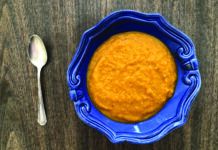Answer :Its commonly known that grapefruit juice has the potential to boost excessively the action of many prescription drugs. David G. Bailey, PhD, a professor of clinical pharmacology at Western Ontario University who discovered that grapefruit-drug interaction 20 years ago, recently identified a reverse effect of some common juices-including orange, apple and, again, grapefruit juice. The mechanism is different from that by which grapefruit can overly enhance the power of drugs (through deactivating a gastrointestinal enzyme that normally breaks down medications before absorption into the bloodstream). In research presented to the American Chemical Society in 2008, Bailey and colleagues reported that fruit juices consumed within two hours of taking certain other medications can decrease their absorption sufficiently to raise concern for weakened effectiveness. Currently identified medicines negatively affected include blood-pressure-lowering beta blockers (such as atenolol, celiprolol and talinolol), the allergy treatment medication fexofenadine, the antibiotic ciprofloxacin and the anti-cancer drug etoposide. Researchers believe naringin, the compound that gives grapefruit its bitter taste, is responsible for a major portion of the effect in grapefruit juice, and have identified a naringin-like chemical in orange juice as well. The findings dont mean you have to give up fruit juice, however. Juice consumed four hours prior to taking medications had no weakening effect. Bailey advises, Take your medications with water, at least two hours before consuming fruit juices or eating fruit, if possible on an empty stomach, to prevent reduced drug absorption.
- #7213 (no title)
- About
- Cart
- Checkout
- Contact the Editor
- Contact Us
- Content restricted
- Customer Service
- Glossary
- Nutrition 101 – Glossary – J
- Nutrition 101 – Glossary – K
- Nutrition 101 – Glossary – L
- Nutrition 101 – Glossary – M
- Nutrition 101 – Glossary – N
- Nutrition 101 – Glossary – O
- Nutrition 101 – Glossary – P
- Nutrition 101 – Glossary – Q
- Nutrition 101 – Glossary – R
- Nutrition 101 – Glossary – S
- Nutrition 101 – Glossary – T
- Nutrition 101 – Glossary – A
- Nutrition 101 – Glossary – B
- Nutrition 101 – Glossary – C
- Nutrition 101 – Glossary – D
- Nutrition 101 – Glossary – E
- Nutrition 101 – Glossary – F
- Nutrition 101 – Glossary – G
- Nutrition 101 – Glossary – H
- Nutrition 101 – Glossary – I
- Nutrition 101 – Glossary – U
- Nutrition 101 – Glossary – V
- Nutrition 101 – Glossary – W
- Nutrition 101 – Glossary – X
- Nutrition 101 – Glossary – Y
- Nutrition 101 – Glossary – Z
- Manage Email
- My Account
- OFIE – Subscriber only
- Online Account Activation
- Privacy Policy
- Products
- Products
- Register
- Register
- Registration Complete
- Registration Complete
- Sample Page
- Settings
- Subscribe
- Subscribe Now
- Tufts & Health Nutrition
- Tufts & Health Nutrition | JH Inforce
- Tufts & Health Nutrition | JHV Employee
- Tufts & Health Nutrition | John Hancock
- Tufts & Health Nutrition | Manulife Asia
- Tufts & Health Nutrition | Manulife Vitality
- Tufts & Health Nutrition | NU101
- Tufts & Health Nutrition | Tufts Employees
Copyright 2020 Tufts University Health & Nutrition Letter



















